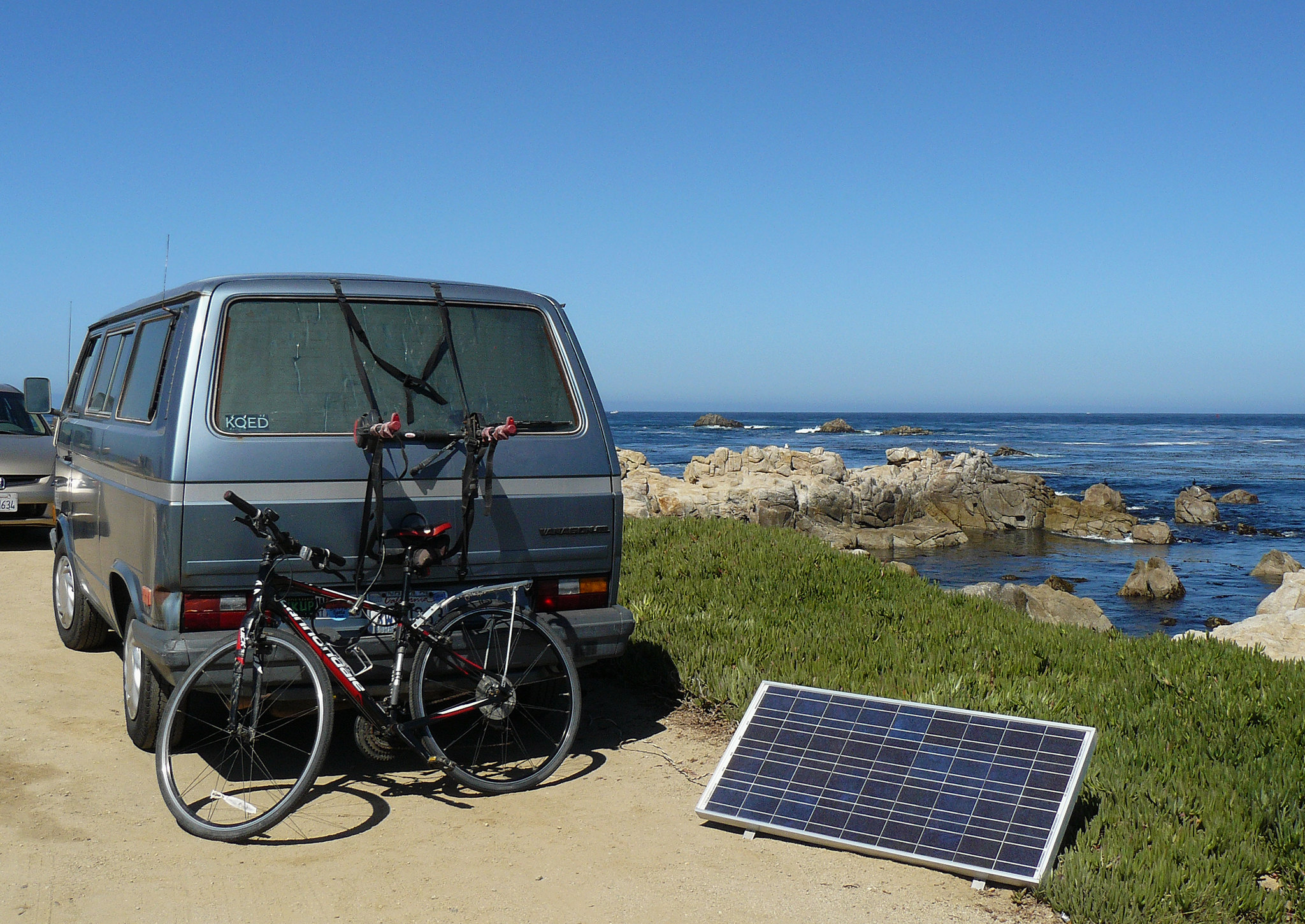
5 Reasons You Should Use Solar Power Instead Of A Generator
Solar power vs generator power has been long discussed around RV parks and campfires. Generators have been a dependable source of power for a very long time, but in recent years with developing technology and improved access the solar power camp has grown.
Below we will discuss how using solar to power your RV can make your experience more enjoyable, sustainable, flexible, and even more affordable.
1. Peace and quiet
Imagine sitting in your campsite admiring your view of a lake, valley, or mountain, listening to songbirds chirping away, and thinking to yourself how peaceful and great this is.
Or you’ve found an amazing boondocking spot right on the beach and you’re listening to the waves crash outside your window.
Then you realize you’re running low on power and need to start up your generator. Now all you hear is the sound of a small engine revving away. What a downer!
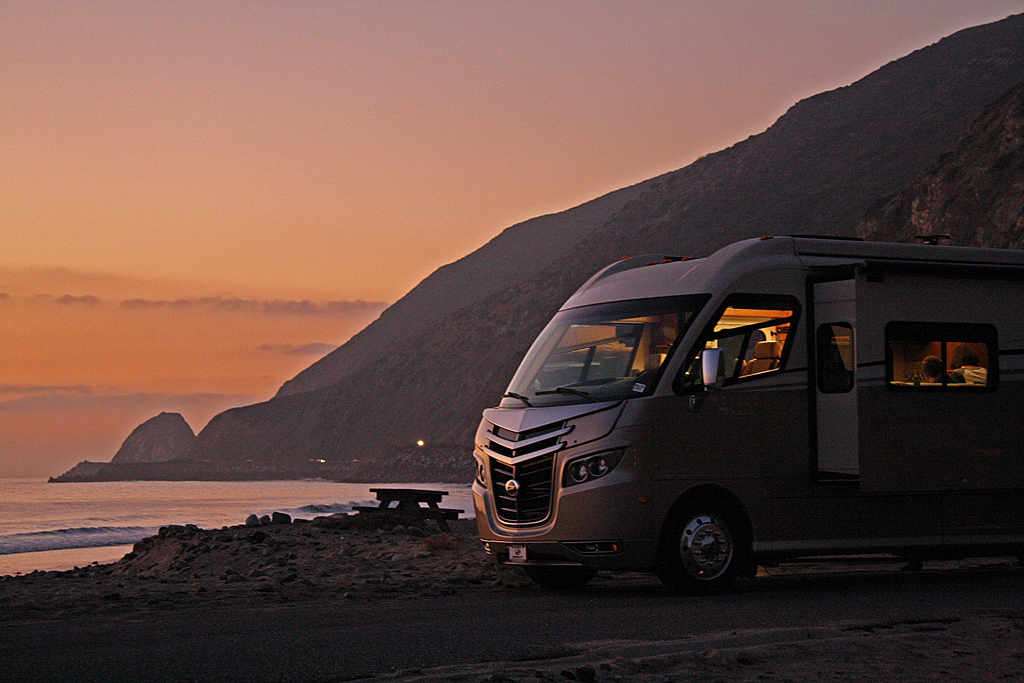
The biggest reason many of us start the RV lifestyle is to explore the country and wild open spaces. With solar power, you can continue to enjoy all of those sites and sounds without getting up to turn anything on.
Solar power is hands down the quietest means to supply power to your rig without disturbing your neighbor or nature. A properly set up solar power system can generate all the power you need with absolute silence.
2. There are options for all budgets
Money is a sticking point for a lot of people. But with the ever-changing and improving solar products now offered, it doesn’t have to be anymore. Depending on your energy needs, solar setups can be inexpensive and readily available on websites such as Amazon and eBay.
- Batteries will be your biggest cost depending on battery type (i.e. flooded, gel, AGM, or lithium), preference, and budget.
- Inverter/converters will be the next biggest cost but are needed to make direct current (DC) into usable alternating current (AC). Read here on how to choose the best option for your rig.
- Solar controllers are relatively inexpensive depending on the amperage rating but are critical in protecting and charging your batteries.
- Finally, you will need the solar panels which are inexpensive and available from several manufacturers.
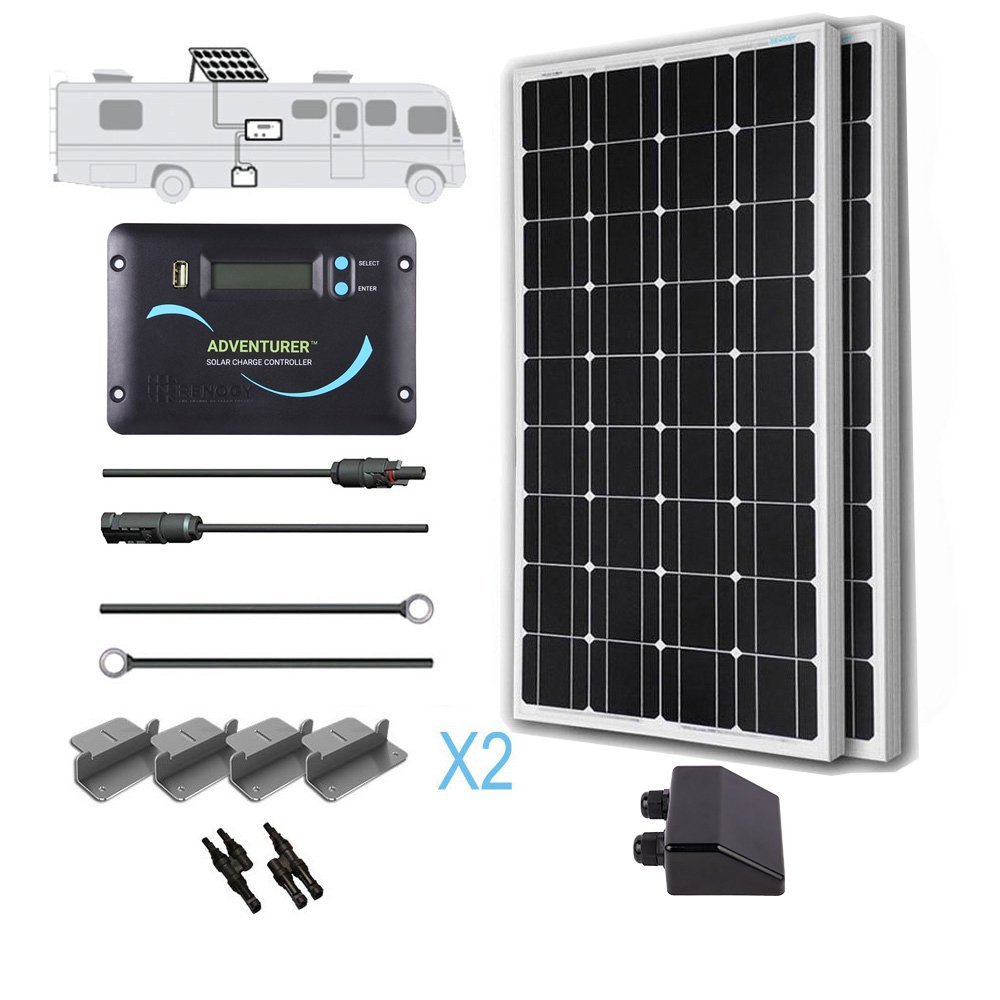
Upfront costs for a solar set up can add up just as much as a generator, but with minimal maintenance, solar can be dependable and reliable for a long time.
Generators, on the other hand, can easily cost thousands of dollars to buy and repair, and also cost money to maintain and operate. You will need to either personally maintain your equipment or pay a technician to maintain it, and for some people, this would not be physically or financially possible.
Fuel is required for your generator to run, so it either drinks regular or diesel. And depending on the region of the country, fluctuating fuel costs can be an added expense to budget in. All of these extra parts, equipment, fluids, and tools add weight to your rig, which makes your RV work harder to haul and drive, and translates into more fuel consumed to drive from point A to B.
3. They’re low maintenance
The most important piece of equipment with solar power is your batteries. The type will dictate whether you have some or no maintenance. Read here on how to choose the best RV batteries.
- If you have a gel, AGM, or lithium battery, you will not have to do any maintenance other than an occasional visual inspection.
- Flooded batteries require a monthly maintenance routine. All this requires is removing the battery caps to check the level of liquid in the battery and topping off with distilled water if needed. Anyone can do this! Read here for more information on battery maintenance.
- Check battery connections for any signs of corrosion. If your connections are tight this should not occur.
- Your solar panel maintenance is as easy as washing or removing any dirt, snow, or debris off it.
Generator maintenance as I mentioned above requires more money, time, and manual labor to maintain. For some people, this maintenance would be hard to physically perform and might be mentally intimidating as well.
If you run the generator a lot you’ll need to have extra fuel on hand, and extra parts such as spark plugs, air filters, and engine oil.
4. Solar is more sustainable, and better for the environment
We all know that burning fossil fuels is bad for the environment. But even though most of us need to use them to drive around the country in our RVs (props to the biofuel RVers!) why not cut out any extra use?
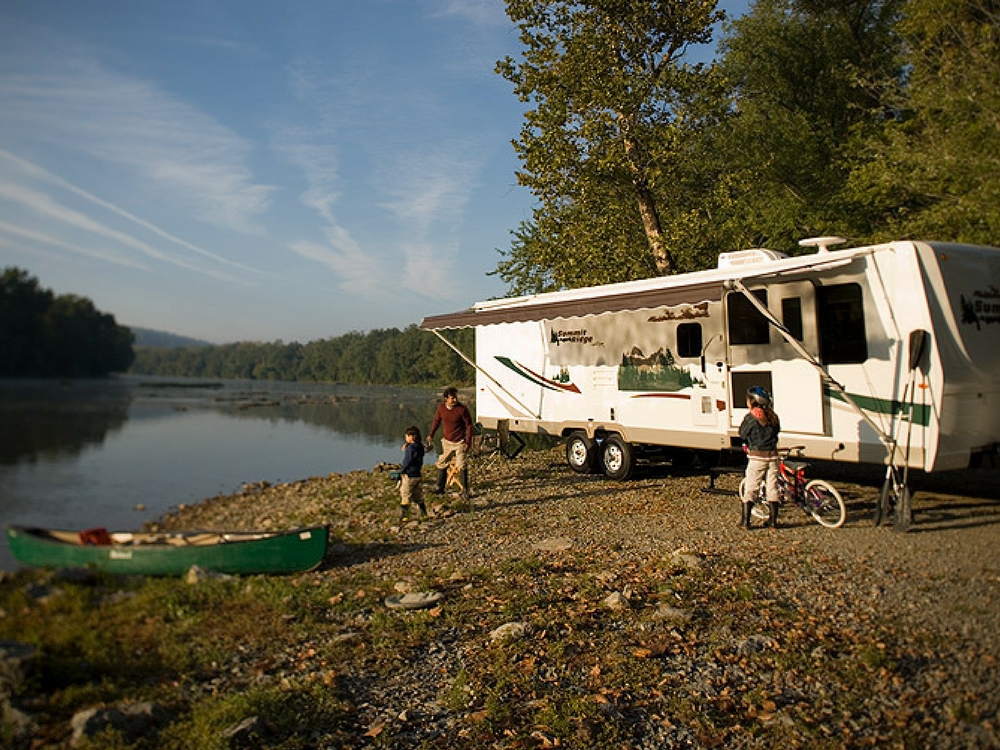
One easy way to do that is by using a solar setup to satisfy your power needs instead of a generator. The sunlight is there and using it does absolutely no damage to the environment, so why not take advantage?!
It is an amazing and rewarding feeling to go about your everyday activities knowing that all your power is coming from the sun. And the longer you stay unplugged or without running a generator, the more empowered you feel.
5. You can camp in more areas
Many National Parks and State Parks have areas of their campgrounds designated as “No Generator Allowed” areas. Not only does this limit your chance at getting a site if you’re relying on a generator, but it also increases your chance if you have solar power.

We’ve pulled into Walk-Up Only campgrounds to find the full hook-ups and generator areas full while the no generator areas had plenty of spots available.
Even if you are in a campground where a generator is allowed, there are often certain times when you are not allowed to run it. This may mean having to visit your solar powered neighbor for coffee when you’re out of power for your coffee machine and it’s too early to run your generator!
Once you make the leap to solar, you won’t go back!
Making the move to solar can be intimidating and overwhelming. Choosing the right system for your power needs can be a confusing process and of course, there’s always the fear, “what if it stays cloudy forever!?”
However, once you make the move to solar I believe you’ll find that the peace and quiet, affordability, low-maintenance, and good feelings will make you a happy camper.
For more information on the benefits of solar power, check out:


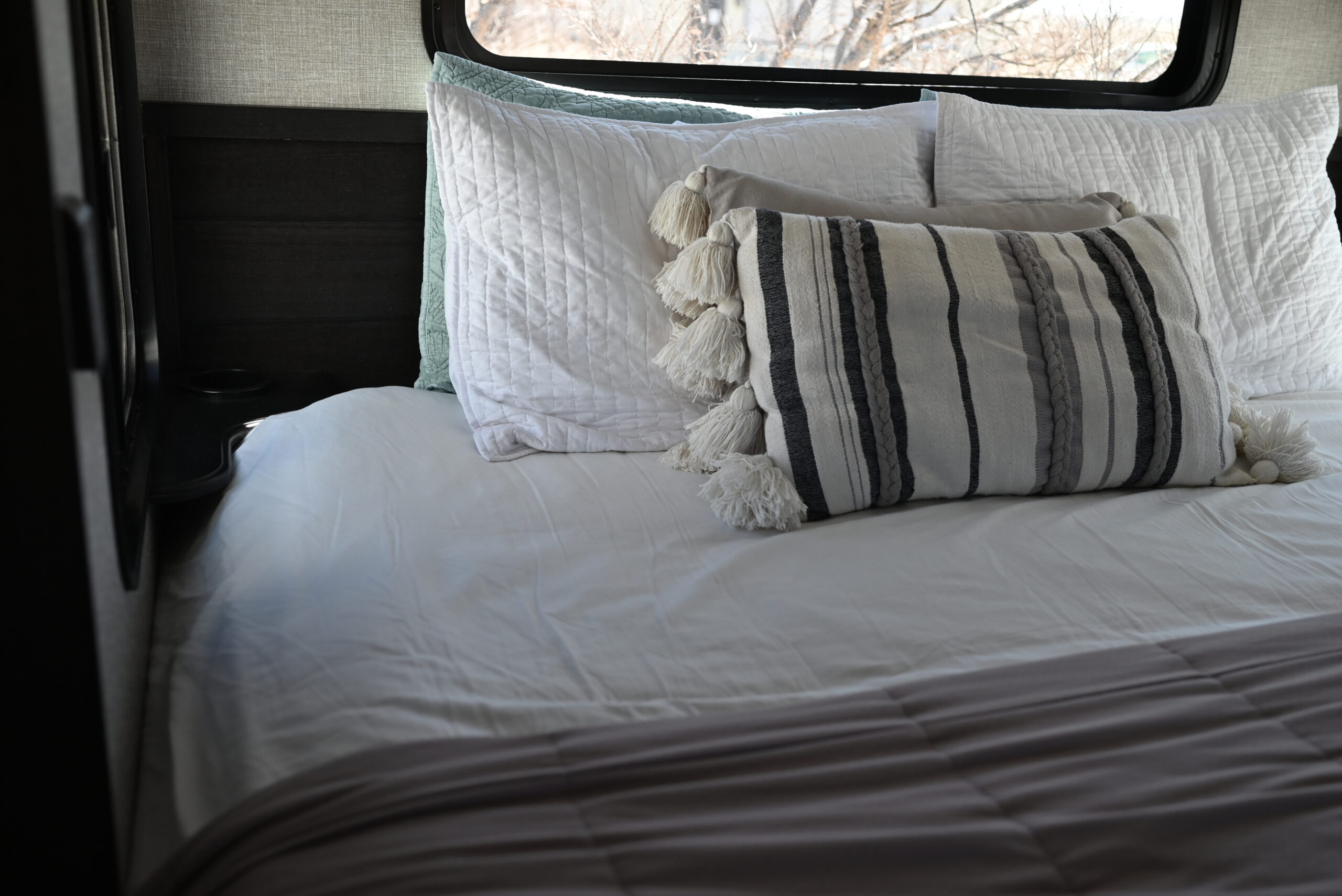
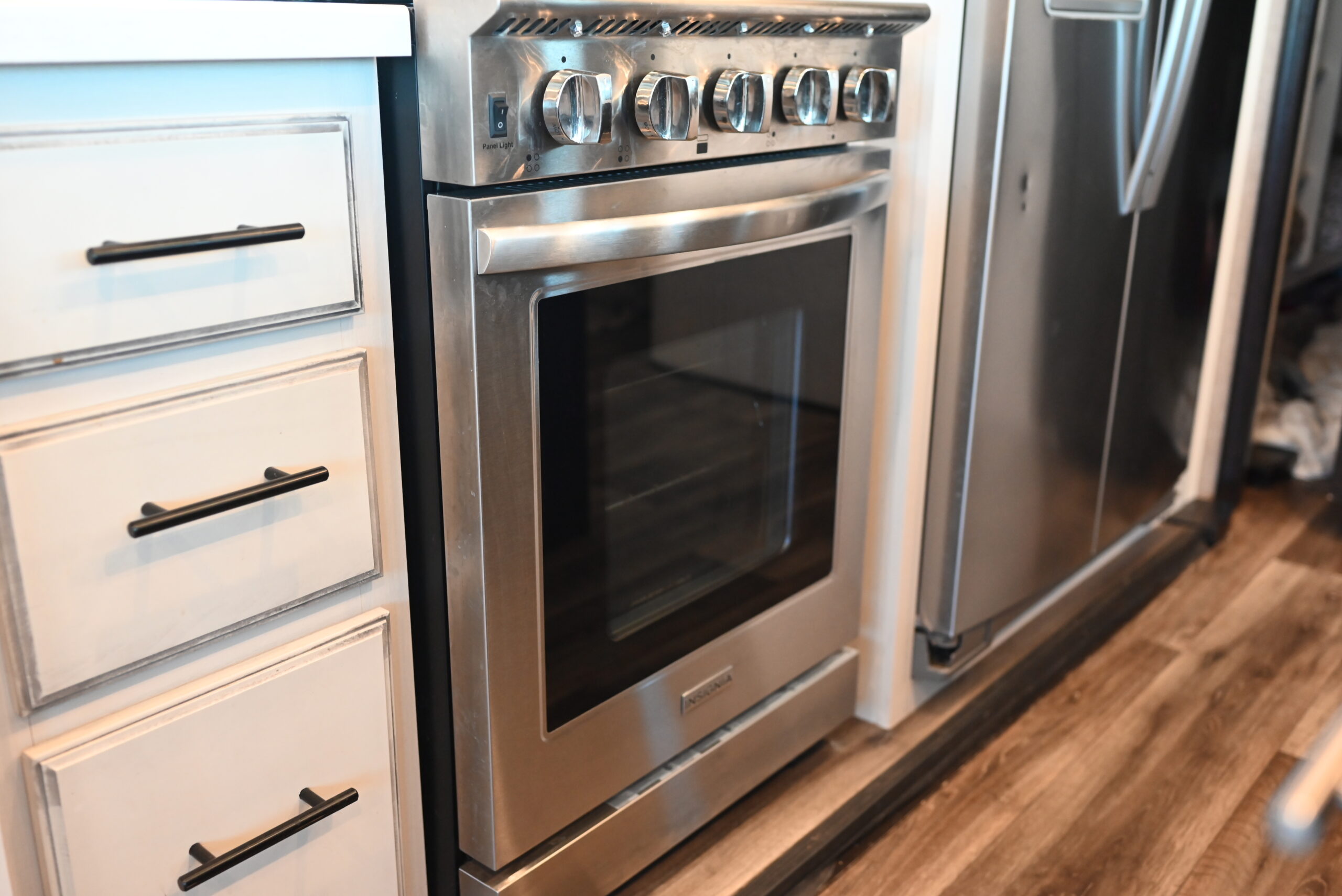
Is it “possible” to sqeak by with solar alone? Yes, but unless you spend big $$$ for all the extra equipment it takes, it’s not a good plan. There’s a reason why RV manufacturers aren’t ditching generators in favor of solar. There’s a reason we keep seeing all the edgy “alternative energy” companies going broke, and why none of them can be self-sustaining – they require MASSIVE government (taxpayer funded) subsidies to stay solvent.
The dirty little secret is that the technology’s not here yet for solar to be what the advocates promise it is – it’s just not. Can you charge a battery with just a solar panel or two? Yep – but the energy it’ll produce costs waaaay more than it’s worth. My guess is that those who think solar is the way to go are the same ones who buy into the myth of “global warming”.
Solar is nice to have but you do need a generator for those cloudy days. I have 600 amps, but only 300 usable amps. Been using solar for 10 years. 7 panels and 4-300 amp AGM batteries. It is feasible to
run your AC off batteries but it really requires Lithium batteries and at least 960 watts of solar. (which is really expensive)
The way I use my system when boondocking is to crank up my Honda 3000i when I use anything that
heats and then turn it off after use. (making my coffee, running Microwave, or toaster) I crank on my
generator for a short time in the morning after using batteries all night and top off the batteries. Then
run on solar all day then I top them off around 6 pm to run all night. My generator Typically runs about
45 mins in the morning and the same in the evening, that’s all. I just don’t boondock when it’s where it’s
hot. I have led lighting both inside and out. You’ll need to run the generator more on Cloudy days.
We tend to fear and reject the unknown. Solar is not as mysterious or complicated (or expensive) as some would have you believe. Solo female, living and working full-time off-grid for 13 months now. 3 panels on my small 22′ Class C roof collect 580 watts; 4 sealed AGM batteries tucked under the sofa on their sides (no outgassing, no maintenance) store 500Ah (250 actual hours) of power. The system has paid for itself already: I’ve camped on free BLM land or very inexpensive drycamping in (very beautiful) state, county or port campgrounds for 95% of my time on the road – the other 5% of the time with hookups only because I didn’t depart the hot desert fast enough last spring. I won’t run the noisy, smelly on-board generator unless I’m desperate, and I won’t park near anyone else running theirs. It will be a beautiful day when everyone finally has solar. 🙂
I have a 36-ft 2012 Victory Lane (Dutchman by Thor) toy hauler with medium-plush living space. I installed 550 w of solar panels (with 6 100-AH AGM batteries and proper voltage controller) while in New Mexico, and found it possible to run indefinitely (toaster, microwave, refrigerator, 3 computers, Dish mobile with TV, etc.) if I did not need AC. A bit inconvenient if cloudy, but that is what the Honda EU2000i is for. Yes, I needed to be energy-conscious, and this is solo – no other persons involved. Oh, and the rig has a built-in 30-gallon gas station aboard, so I have a lot of flexibility… This was quite an expensive venture, and going solar will never pay back the cost in energy savings, but independence is sweeter than money.
Some other points:
Corrosion on battery terminals is not caused by looseness- it’s caused by out gassing of the batteries due to constant overcharging.
I’d consider a small system to keep my batteries up but that would be all.
The loads most people put on their a/c system could not be supported by any solar system made for rv’s- you just couldn’t afford it- period. It would not be without maintenance or other cost-related issues.
Most people who initially start with a system find out they need “more”. They’re never done…always adding more panels, batteries, a more advanced controller, etc.
Most of the experienced boon dockers who have solar also usually have at least one generator, or maybe two that can be connected together.
It’s advisable to do a detailed plan of your anticipated load requirements (both a/c and d/c) before investing in a solar setup that will satisfy your realistic needs. It’s not ideal to have to budget your electrical demands to match your system’s capability.
Sorry I forgot to mention the Generator
I find the time it takes to make breakfast make a nice cafe latte using 7.5 k Gen my 4 6v batteries are all charged and good until the next moring, fridge, stove, 2 furnaces, hot water all on 200 lb propane tank and oh yeah I have solar panels if I could find a need for them.
I find the time it takes to make breakfast make a nice cafe latte using 7.5 k Gen my 4 6v batteries are all charged and good until the next moring, fridge, stove, 2 furnaces, hot water all on 200 lb propane tank and oh yeah I have solar panels if I could find a need for them.
I find the time it takes to make breakfast make a nice cafe latte my 4 6v batteries are all charged and good until the next moring, fridge, stove, 2 furnaces, hot water all on 200 lb propane tank and oh yeah I have solar panels if I could find a need for them.
I have both an on-board built-in generator and solar on my Class B RV. Solar is great to have, but for anything other than short term outings it falls short unless you have a very large battery capacity and enough solar panels to support it. There just isn’t enough of both on most units sold to be totally self sufficient. You generally run out of battery capacity when using high current items like microwaves, induction cooktops, air conditioners, heaters, etc, and the roof area of most RV’s can’t support enough solar panels to replace the used current even when the entire roof is completely covered in panels. So after a couple days, you need to go hook up somewhere, drive around for a few hours using the alternator to charge your batteries, or run a generator for a while to top off the batteries.
Conservation of power is critical in solar installations and usually this means no A/C, extremely limited use of electric cooktops, heaters, etc, so that the solar panels can keep up. Even then it means you must park in full sun to get the most out of the solar system. And parking in the sun tends to really heat up most RVs in warmer climates, thus leading to a desire to run the A/C. Overcast, clouds, snow on panels, dust, etc, all lead to a loss of power. A few days of clouds, rain, or parking in the shade in very hot climates to keep cool, will leave your batteries very low.
For anything other than a short term boondocking, a supplemental charging system is need, such as driving to use your alternator, a portable or built-in generator, or hooking you to external shore power. Solar alone just isn’t ready for prime time. Far more efficient solar panels are needed to make solar a viable alternative, but just aren’t available yet.
How much solar power does it take to run my 3 15k AC’s?? Solar power might be fine for the northern half of the US but won’t work down south.
When solar panels become strong enough to power up the roof a/c’s, Il be the first one in line to purchase same.
Solar panels (rv type) have a long way to go before they become that efficient. In the meantime, I’ll use my Yamaha Inverter Generator for clean safe quiet power!
I’m a big fan of solar systems for RV’s, especially when camping in natural areas. Too many experiences where generator noise wrecks an otherwise peaceful location. Unless you have an ultra quiet generator AND use it sparingly, you are very likely disturbing others and driving wildlife away. Solar = Curtious.
To me it appears that many RV solar systems are poorly designed and/or installed. Did a considerable amount of research a few years ago when I designed and installed my own system. Search “Handy Bob Solar” for a great resource on understanding off grid systems for RV’s.
Yes, there are limitations such as shady sites and cloudy days, however, those can be managed if one is careful about not pulling too many amps. I can go 5-6 cloudy days (using 20 amps/day average) and be back to full charge by mid-afternoon on a day with decent sun. That said, I make coffee the old fashioned way with a French press and the microwave’s primary purpose is for bread storage. We use small inverters for occasional TV and charging of computers. Have LED lights throughout and turn them off when not needed. Only time a generator would come in handy is when we want/need AC – in those rare cases I book an electric site. Those with heavier amp needs would need a larger battery bank and a properly sized inverter.
Have just over $1000 in my system: two Trojan T-105 RE 6 volt batteries (wet cell) wired in series (12 volt 250 amps), two max. output 144 watt/4.4 amp 24 nominal volt amorphous panels (least efficient) wired in series, and a Morningstar MPPT controller which takes high volt/low amps from panels and steps down to proper charging volts while boosting amps to battery bank. Important to understand correct wire gauges, proper installation, necessary safeguards (ex: fuses, breakers), and precise system settings for specific components used. Our limiting factor for duration of stay is now our waste tank capacity.
RV manufactures and dealers should seriously up their game on correctly equipping RV’s with decent solar systems, not just installing ones that trickle charge batteries when the RV is stored (you can buy that for <$40 on Amazon).